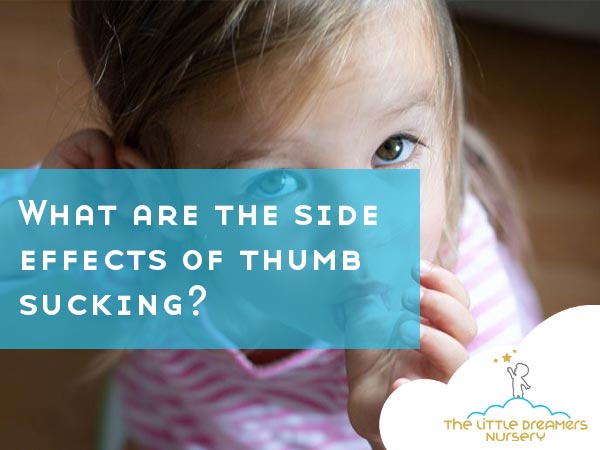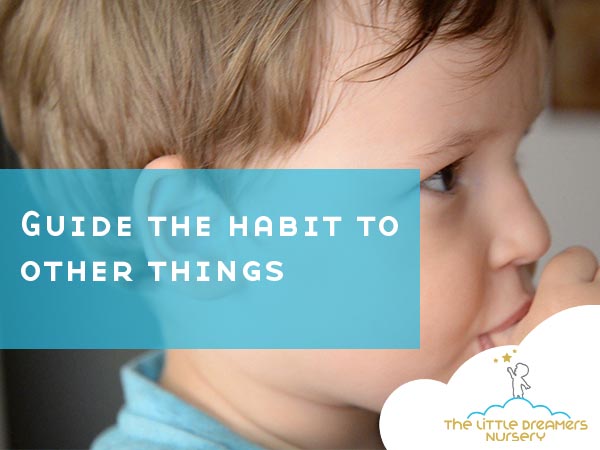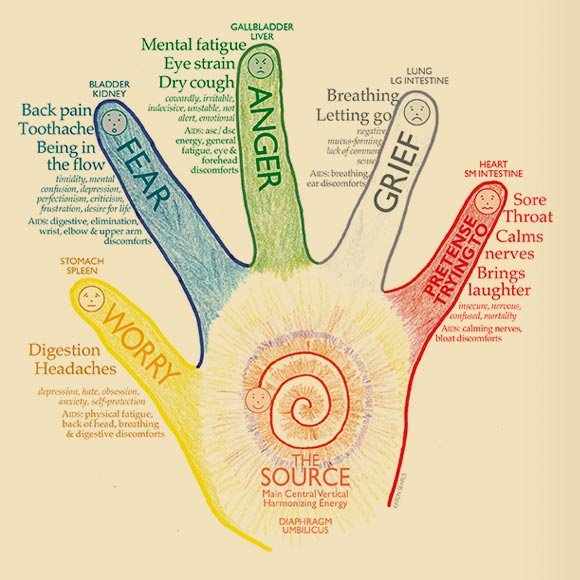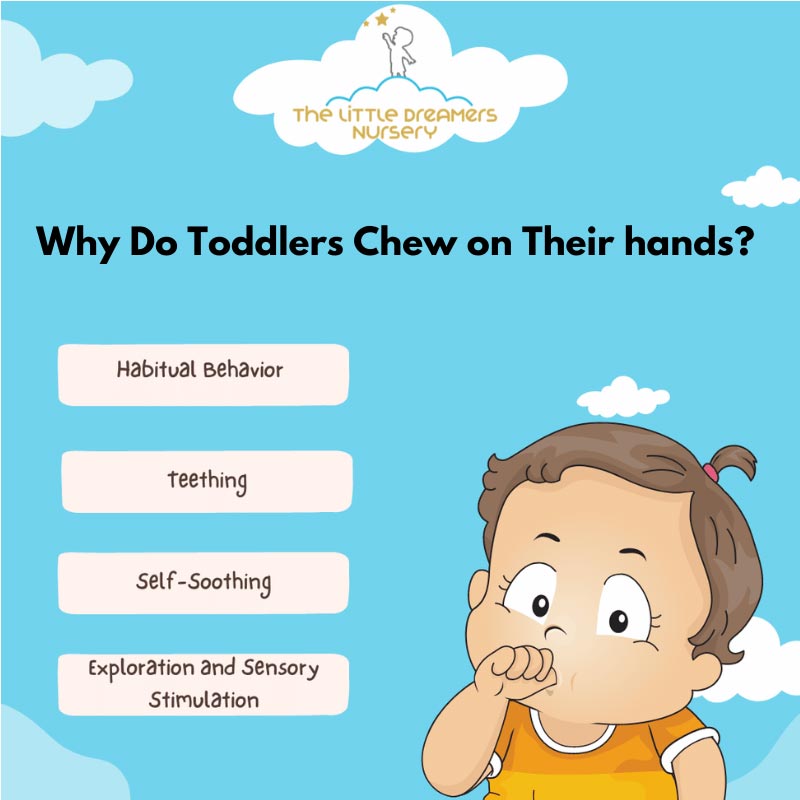One of the most important reason is “Exploration and Sensory Stimulation”: Young children are curious and use their hands to explore the world around them. By putting their hands in their mouths, they can further investigate textures, tastes, and sensations.
You may ask, ‘Why do toddlers eat their fingers?’ Babies are born with the ability to root and suck instinctively.
Finger sucking is not a good habit for children and can be a difficult habit for some babies to break because it has a soothing and calming effect. According to the American Dental Association (known as ADA) and the American Academy of Pediatric Dentistry (known as AAPD), eating on one’s finger is discouraged in children between 2 and 4.
If you are wondering, “How can I stop my baby eating his/her hands?” then we suggest that you continue reading.
Why does my baby put his fingers in his mouth?
As the Best British Nursery in Dubai, Parents should consider purchasing a teething toy, cold washcloth, and ice cube tray when a baby’s teeth begin to fall out of their gums. If you suspect teething prevents your child from falling asleep, consider giving them an over-the-counter pain reliever like infant acetaminophen or ibuprofen .
2 or 3 year old suddenly putting hands in mouth
Why does toddler chewing on fingers? Self-eating or teething can also be the cause of this behavior. It’s not uncommon for young children, around the age of three, to put their hands in their mouths. There could be several reasons why a three-year-old suddenly starts doing this:
- Teething: Around this age, children may experience teething discomfort as their primary teeth continue to emerge. Putting hands or fingers in the mouth can provide temporary relief from the pain and pressure they feel.
- Exploration and Sensory Stimulation: Young children are curious and use their hands to explore the world around them. By putting their hands in their mouths, they can further investigate textures, tastes, and sensations.
- Self-Soothing: Sucking on their hands or fingers is a common self-soothing behavior in children. It can provide them with a sense of comfort, relaxation, and security, especially in unfamiliar or stressful situations.
- Habitual Behavior: Children may develop certain habits, such as putting hands in their mouths, without a specific underlying reason. It could be a learned behavior or a response to boredom or anxiety.
While occasional hand-to-mouth contact is normal and harmless, there are a few things you can do to address excessive hand-to-mouth behavior:
- Redirect their attention: Engage your child in activities that keep their hands occupied, such as playing with toys, drawing, or engaging in interactive games. Redirecting their focus can help distract them from putting their hands in their mouths.
- Encourage proper hygiene: Teach your child about the importance of hand hygiene. Explain that it’s essential to keep their hands clean and encourage them to wash their hands regularly, especially before meals and after using the toilet.
- Provide teething relief: If you suspect teething discomfort, offer your child appropriate teething toys or chilled, clean, and safe objects to chew on. This can help alleviate their discomfort and reduce the need for them to put their hands in their mouths.
- Identify triggers: Observe if there are any specific situations or emotions that trigger the hand-to-mouth behavior. Identifying these triggers can help you address the underlying cause or find alternative ways to help your child cope with those situations.
If the hand-to-mouth behavior persists or intensifies, causing significant distress or interfering with your child’s daily activities, it’s advisable to consult a pediatrician or healthcare professional for further evaluation and guidance.
What are the side effects of thumb sucking?

Why do toddlers eat their fingers? When a child’s permanent teeth erupt, finger-sucking or thumb sucking tends to be less of a problem. Long-term finger sucking, on the other hand, may result in the following side effects:
- A frontal lisp, tongue thrust swallowing, and tongue thrust speech pattern.
- The tongue rests in an abnormal position.
- Tongue strength will be decreased.
- Inability to lift and move the tongue from side to side can affect both speech and feeding.
- An open bite can have a negative impact on your ability to bite, chew, and speak.
Don’t miss this article: Should parents stop brushing children’s teeth when they reach a certain age?
How to stop a child from chewing on their fingers?
Helping their child stop finger sucking or toddler putting fingers in mouth, here are some helpful tips:
- Encouragement and motivational language. Reward your child with more playtime when they take a break, and you praise them for it.
- Remind them gently to stop.
- Find other ways to cope and relax. Use a squeezable pillow to help your children cope and soothe themselves.
- Schedule an appointment with the child’s dentist or pediatrician. When it comes to getting your child to stop thumb sucking, talking with a doctor can be more effective than discussing it with you or your spouse.
- Don’t criticize or scold. You shouldn’t put undue pressure on your child to break the habit. Finger sucking can be exacerbated by pressure.
According to thumbsie.co.uk:
In many cases, there is an obvious solution to your child’s finger sucking. If they are hungry, it may be time for lunch or dinner. If they are teething and in pain, find other options for soothing them:
a cold wash cloth on the gums or a gentle mouth massage can help.
In the more extreme, and persistent cases, and where you are particularly worried about oral health and development, it may be time to seek professional help.
Visit our nursery in Jumeriah
Why do toddlers eat their fingers? Now you know you can also help your child stop sucking their fingers after trying these methods, you might consider using devices (such as a mouth guard, glove, and fingernail polish that tastes bad)..
We strongly suggest that you should first speak with your child’s dentist or pediatrician about these options. However, it’s also important to remember that what works for some children may not work for others, so it’s important to be flexible but never underestimate the effect of nursery on babies. (<<Click to read the article)
Don’t miss these articles:
Things to ask your child instead of how was your day
5 Bad habits in children and how to prevent them
Now that you know ‘Why do toddlers eat their fingers?’ proven options that you can use to help them stop it

Why do toddlers eat their fingers? Kids chew for various reasons, but the most common reason is to satisfy a need for sensory input that they otherwise wouldn’t have access to. You’ve come to the right place! If you’re looking for methods to help your child get the sensory output he needs, these are some great options in a more acceptable and sanitary manner.
Chewelry or chewable jewelry
Chewable jewelry is exactly what it sounds like jewelry that a child can safely chew. Beyond the fact that they’re adorable, kids can chew on these toys whenever the urge strikes them. Many ideas can be found on Google, but this Amazon link includes some of my favorites.
Chewing Tubes
Chewy Tubes are fantastic because they provide a chewable surface that can withstand a lot of wear and tear. They’re completely safe, and they can be used to strengthen the jaw and retrain bad chewing habits.
Pencil Toppers
This is considered a great option for students who have a hard time keeping their pencils and pens in their mouths! These pencil toppers usually fit any number 2 pencil and are generally accepted by their peers, which is a major plus for students of all ages.
Straws
It has been found that providing a straw to chew on has been a huge success in our parenting efforts. Straws are readily available and inexpensive, whether we’re dining out, driving through a coffee shop, or just relaxing at home.
Watch the introduction video for The Little Dreamers Nursery.
Looking for the best Dubai nurseries? The best thing you can do is visit them. Visit our nursery in Dubai by booking a tour. Here is an article that may be helpful : Choosing a nursery in Dubai.













I have never seen a a blog page like your website in all nurseries in Dubai. Thank you very much for useful articles.
As a parent, this article resonates with my experiences.
Understanding why toddlers chew on their fingers, especially during teething or as part of their exploration, provides a reassuring perspective.
The expert advice and relatable anecdotes make it not only informative but also practical. It’s great to have a resource that acknowledges common concerns and offers helpful tips for navigating this phase with our little ones.